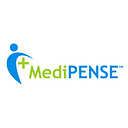Chronic Disease patients benefit most from Electronic Reminders and IoT Connected Devices
A recent year-long study concluded that Electronic Reminders, Financial Incentives, and Social Support did not significantly improve medication adherence or vascular readmission outcomes for AMI survivors. By the time these results propagated the Internet, the resulting headline evolved into “Pill Reminders Don’t Improve Adherence”. How could this be possible? Is this fake news?
A little closer investigation revealed some basic anomalies with the study as well as with the reporting of results. Sensationalism seems to be the new norm in our society.
Firstly, the study was conducted with patients released from hospital after suffering acute myocardial infarction (AMI). These patients are not the typical sample one would expect for a medication adherence study. Secondly, when compared to chronic care and senior patients, regularly consuming 5–15 medications per dose, these AMI patients took only statins, aspirin and maybe a couple others. The qualifications for the study were minimum of 2 medications and recent release from hospital due to AMI. These AMI patients are just that, acute patients, not chronic. They suffered a life altering, near death experience and are amongst the most highly motivated “to stay alive” population around. No data was provided on adherence of the normal group? They claimed AMI patients had a low adherence to medications, but the data was not qualified. Only a comparison between the control group and the core participants was made. The effectivity of the medications, the relation to the type of medications taken and other factors were not explored or compared.
If pills were provided in regular vials, or vials that glowed, would that matter to a highly motivated patient? If you were offered a chance to win $50 to take your pills on time, would that motivate you to take them? Adherence was reported and measured by not taking medications for days, as opposed to the normal methodology of missing a single dose. How relevant is this measurement of adherence? The results of this study concluded none of these factors were statistically relevant.
Heart failure patients recovering from an acute myocardial infarction (AMI), weren’t the right group to benefit from the intervention. The authors also suggest that the flaw could lie with the current design sensibilities of electronic pill bottles, poor engagement with the technology. I prefer the analysis provided above.
So, let’s examine who benefits the most from a medication management product.
Chronic care patients, seniors with mild cognitive impairments, mobility and visual impairments are the largest consumers of health care dollars and the ones needing the most help. Those with chronic conditions such as COPD and Chronic Heart Failure do not usually self-manage well. When you take up to 15 medications per dose, it’s difficult for anyone to remember what to take, when to take it, and how to take it. This is where automation can best assist.
Up to two thirds of elderly patients render their medications useless by taking them at the wrong times.
People do not only forget to take their meds on time, they may take too many. Finally, another common reason for non-adherence is cost. Many do not fill or refill their medications because of the high cost.
There are many studies1 conducted over the past years that show, conclusively, automated reminders reduce medication non-adherence. They communicate with patients and caregivers to ensure pills are taken at the right time. They organize all medications to be dispensed together at the right time. They make it easy to take by pre-opening the packaging for the senior. They link to pharmacy systems to ensure refills. They also provide opportunities for physician and health care provides to monitor vitals in addition to medication consumption, and proactively treat the patient. If cost is a factor, physicians would know about alternate medications and generics that might be available to remove the cost barrier. Quality of care and communications are enhanced when automation is part of the solution. In short, chronic disease patients do benefit from automated reminders and IoT connected devices.
So, by examining all the facts, connected, automated medication reminders, benefit patients, by ensuring adherence, caregivers by reducing visits and stress, physicians by keeping them informed and pharmacists by monitoring consumption and facilitating refills.
1- Improvement In Antihypertensive And Cholesterol-Lowering Medication Persistence Using A Mobile Technology Application, http://dx.doi.org/10.1016/j.jval.2016.03.658
2- Impact of a text messaging pilot program on patient medication adherence. http://dx.doi.org/10.1016/j.clinthera.2012.04.007
